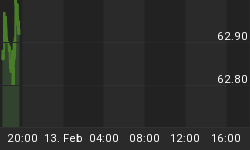Frederick Sheehan will speak at the Committee for Monetary Research and Education (CMRE) dinner on Thursday, May 17, 2012. It will be held at The Union League Club in New York. He will discuss "How We Got Here." Sign up here
Various interpretations of recent European elections have been put forward, one of which gets short shrift. The voters have, for the first time, been given the opportunity to approve or disapprove of the euro. They are voting nein. There is a parallel in the United States.
Before the euro was launched, both Eurocrats and national governments prevented the people from voting for (or against) the single currency (and its appendages, such as the EU's ECB). There were at least two reasons for this. First, the desk clerks knew the commoners were not sophisticated enough to throw their allegiance behind an acronym. Second, the sophisticates did not care what the people thought, since the transfer of power to Brussels and Strasbourg isolated the masters from their help. (There have been referendums in a handful of countries over the years. Some have voted in favor, some against. In countries that voted nein, the commoners were subjected to more referendums until they understood what was best for them.)
The most important question today is whether that power is shifting. The potential shift of power was not a theme in newspaper interpretations of the French, Greek, and German elections held this past Sunday (May 6, 2012). The post-op reports followed conventional formulas, all of which fall under the heading of a vote against austerity.
One note on austerity: it has barely begun. According to James Aitken (Aitken Advisers L.L.P,), Italy has only implemented 10% of government-approved spending reductions or tax increases. Spain has barely started.
A second note on austerity: no matter who is in charge, austerity will be much larger than is generally understood. It will cross the Atlantic. There is no point guessing when that may be.
Many of last weekend's voters surely believe tossing Sarkozy into the Seine will restore their eight-hour work week. They are wrong. Others understood they were voting to restore national sovereignty. Such a Eurocrat as Italian Prime Minister Mario Monti (European Commission, Goldma Sachs) understands where loyalties lie. He asks Italians to adopt austerity for the good of Italy.
An earlier call to internationalism died in August 1914. A fundamental tenet of Marxism was the international uniting of workers. Not a single English factory worker crossed the channel to fight beside his German comrades. The floor sweepers at Rolls-Royce assembly plants had more in common with their chairman than a single Pomeranian granadier.
The test today will be after the banking systems fail. That will follow the ECB's inability to supply the loans or euros needed to prop the commercial banks. Brussels' finances and authority will wither. The question then will be the legitimacy of national institutions. Without banking systems, governments will not be able to meet financial commitments. The next question will be whether the people permit national governments latitude during the chaotic austerity that follows. (Unlike Americans, Europeans have lived through this, most recently in 1945.)
The help may opt for the liberating panaceas of freedom, liberty, or anarchy. Such slogans usually boomerang and eat their own. Americans are advised to study the transfers of power. Who knows when, but the American government debt bubble will burst.
Frederick Sheehan writes a blog at www.aucontrarian.com

















